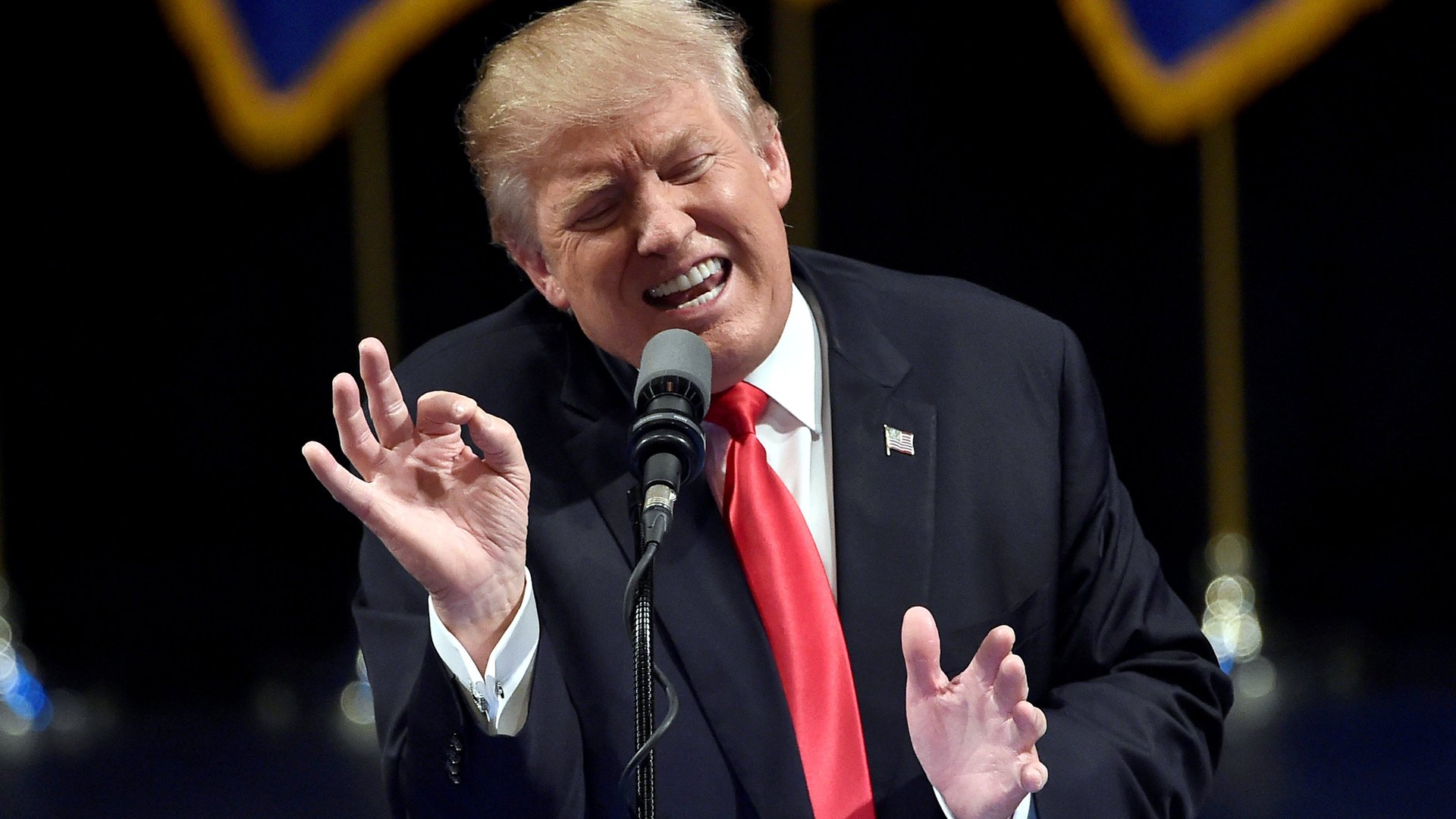Donald Trump won’t make his campaign repay his $50 million loan
Donald Trump says he will forgive the $50 million he has loaned to his campaign, in an attempt to boost confidence in the erratic builder’s floundering run for the White House.


Donald Trump says he will forgive the $50 million he has loaned to his campaign, in an attempt to boost confidence in the erratic builder’s floundering run for the White House.
“I have absolutely no intention of paying myself back for the nearly $50 million dollars I have loaned to the campaign,” the presumptive GOP presidential nominee said in a statement. ”This money is a contribution made in order to ‘Make America Great Again.'”
Trump is struggling to raise the money he needs to take on Hillary Clinton this fall, with only $1.3 million in his campaign bank account at the beginning of June.
While Trump frequently says he is a self-funding candidate, the bulk of his campaign expenditures were funded by loans that could be paid back from campaign donations. Declaring the loans a sunk cost could help Trump convince major donors to back him, without having to worry that their contributions would just go back into Trump’s pocket.
Directly, that is. A significant amount of Trump’s campaign spending—about one dollar in every ten—is directed to his own real estate, transportation and food service companies. At the beginning of June, Trump had spent $6.2 million of his campaign’s $63 million in outlays at his family’s companies, according to a Quartz analysis of federal election data.
That’s a smaller ratio than it was at the end of 2015, when we found that 25% of Trump’s campaign spending went to his own companies.
Since then, Trump has begun spending more on staff, consultants and traditional campaign services, under pressure from the Republican establishment (and his deteriorating poll numbers) to professionalize his operations. His top vendor, earning $20 million, was GOP ad-maker Rick Reed. Ace Specialties, the company that makes Trump’s campaign hats and t-shirts, has been demoted to second place.
In the general election, Trump will need at least $500 million to match Clinton, who had $42 million on hand in the last report. Clinton is drastically out-spending Trump on staff and ads in key battleground states, creating an advantage at a time when election day is deceptively far away.
Trump is at best an indifferent fundraiser, failing to even make his way through a list of 20 donors supplied by the Republican party. Though he says his much-disputed personal fortune stands behind his campaign, it remains to be seen if he has enough liquid assets to make a difference against Clinton.